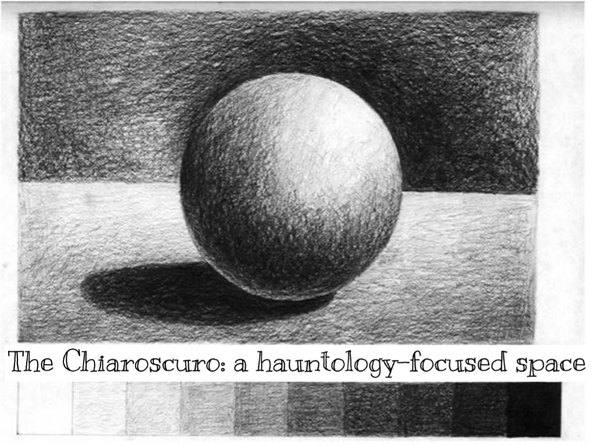A Bachelor thesis with reflections from Lilja
Link to thesis, Turning from the Ruin: A Hauntological Analysis of ZA/UM’s Disco Elysium
https://urn.kb.se/resolve?urn=urn%3Anbn%3Ase%3Ahh%3Adiva-55473
Abstract
This essay explores Disco Elysium by game developer ZA/UM through the lens of hauntology as described by Mark Fisher. The purpose of the essay is twofold; firstly, it is to thoroughly explore the various "hauntings" of the world of Disco Elysium and the role hauntology plays in the setting and plot. Secondly, it is to interrogate what responses the story holds to these hauntings and what solutions, if any, are presented in order to move beyond both the spectre of the past and lost futures. Parallels are also drawn to concepts originating in critical race theory regarding social progress and the future. The conclusion drawn by analysis of the game is that it appears to make an argument for relinquishing expectations of a specific future and for viewing the building of an ideal society as an ongoing process rather than a fixed end goal.
Reflection
Whenever I talk about Disco Elysium, I find myself saying the same thing: if you've any interest in video games as a narrative medium, or indeed the slightest interest in video games at all, go play it for yourself before reading anything I have to say. Yes, even if you have never picked up a game before, or you think you are not good at playing. We'll meet here in a month and compare notes. Remember to check the traps, and for god's sake, be curious.
The impact this game, and especially the process of writing about it, had on me is hard to put into words. When presented with the task of writing an essay on a literary work, I knew at once that I would write about a video game, as I believe the interactive element of games allows for the telling of stories that would be difficult for a novel or film to convey. I spent a long time, however, contemplating which game I would choose. It clicked when a teacher introduced me to hauntology and I realised I recognised these concepts from something I had played just a few months earlier.
Disco Elysium turned out to be ripe for hauntological analysis, but also to be an excellent example of a game. I maintain that much of the power of fiction lies in introducing people to new and different perspectives; here I have been a little hypocritical, as I initially dismissed Disco Elysium simply because at first glance its setting and characters did not particularly appeal to me, and I only tried it after several friends' glowing recommendations. I have since come to care a great deal about the characters I had judged so shallowly.
Moreover, I came to relate to both Harry, the player character of Disco Elysium, as well as Mark Fisher, whose works I read extensively while researching, in ways I did not expect. A few years ago, I was diagnosed with ADD (among other, less relevant things), at long last providing an explanation for my seemingly inescapable fatigue and forgetfulness. The years since have been a winding and rocky path. There is a refrain I've heard from many of my fellow neurodivergent people: I know I could do better, do more, if only... For many, there is both liberation and grief in understanding that that "if only" is a mirage - that their problems are more than a failure of willpower. So it has been for me. The spectre of what I could achieve - if only I studied more, worked harder, picked myself up - has ever loomed ahead, just out of reach. It has been a difficult but necessary process to accept my limitations, stop reaching for what could (not) have been, and start finding real solutions. This thesis is the product of the work I've put into understanding myself, as well as the advice and support of those who saw and believed in the kind of work I could accomplish when supported.
On a surface level, I still do not have very much in common with Harry DuBois. He is a possibly divorced, definitely alcoholic police officer in his 40s; I am, at time of writing, none of those things. I am, however, haunted. Like him, I am haunted by what could have been. Like him, I am haunted by changes in circumstance - or perhaps simply by the unveiling of a circumstance I had not clearly seen - and the melancholic realisation that some paths are simply not open to me. His ghost is a lost love, mine is potential “lost” to disability; by inhabiting Harry throughout the game those spectres blended, and the question of whether it is worth trying to improve Harry's ruin of a life through gameplay decisions became intertwined with the question: am I, too, worth helping? Can I move on with a life that isn't what I imagined it to be?
Yes. There is no path that ends in perfection, but many that are worth the walk. Come, read, and walk with me for a little while.
Lilja (they) is a fresh graduate in English and literature studies at Halmstad University, Sweden. "Turning from the Ruin" is their first and only published academic work thus far, though they are at any given point in time either writing or planning to write, and would like to write games of their own someday. For now, most of their creative work goes into custom TTRPG settings as well as occasional poetry. A handful of their poems can presently be read on their website-in-progress at juliaekvall.wordpress.com.


No comments:
Post a Comment